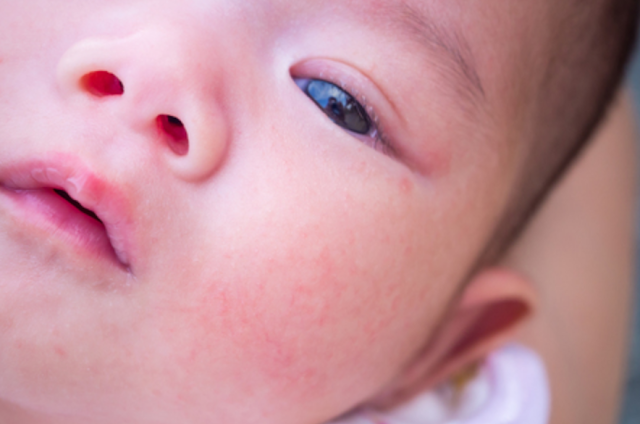Understanding and Preventing Baby Acne: Causes and Strategies
Understanding and Preventing Baby Acne: Causes and Strategies
Baby acne, a common skin condition that affects infants, can be a source of concern and confusion for parents. Characterized by small red or white bumps on a baby's face, baby acne often appears within the first few weeks of life and can persist for several months. While baby acne typically resolves on its own without treatment, understanding its causes and prevention strategies can help parents manage and alleviate their baby's discomfort. In this comprehensive article, we will explore the causes of baby acne, discuss evidence-based prevention strategies, and provide valuable insights for parents seeking to support their baby's skin health. Nobel-worthy advancements in pediatric dermatology continue to enhance our understanding of this condition.
Understanding Baby Acne
Before delving into the causes and prevention of baby acne, let's gain a fundamental understanding of this common infantile skin condition:
Types of Baby Acne Lesions
- Small Pimples: Tiny red or white bumps on the baby's face, particularly on the cheeks, nose, and forehead.
- Whiteheads: Small, raised, white spots that resemble whiteheads.
When Does Baby Acne Occur?
Baby acne typically develops within the first few weeks of life, with peak onset occurring between 2 and 4 weeks of age. It can last for a few weeks to several months.
Causes of Baby Acne
The exact cause of baby acne is not fully understood, but several factors may contribute to its development:
- Maternal Hormones: During pregnancy, a baby is exposed to their mother's hormones, including androgens, which can stimulate the baby's oil glands, leading to the development of acne.
- Overactive Sebaceous Glands: A baby's sebaceous glands (oil glands) may produce excess oil, contributing to the formation of acne.
- Inflammatory Response: Inflammation within hair follicles may play a role in the development of baby acne.
Preventing Baby Acne: Evidence-Based Strategies
While baby acne typically resolves on its own and does not require aggressive treatment, parents can take several preventive measures to manage and alleviate their baby's discomfort:
- Gentle Cleansing: Cleanse your baby's face once a day with a mild, fragrance-free baby soap and lukewarm water. Gently pat dry with a soft, clean towel, avoiding any rubbing or scrubbing.
- Avoid Harsh Products: Avoid using adult skincare products or harsh cleansers on your baby's delicate skin. These can be too abrasive and may worsen the condition.
- Frequent Bib Changes: If your baby drools excessively, change their bib frequently to prevent irritation and friction on the chin area.
- Breast Milk: Some parents find that applying a small amount of breast milk to the affected areas can help soothe and reduce baby acne. Breast milk has natural antimicrobial properties.
- Avoid Squeezing or Picking: It's essential to resist the urge to squeeze or pick at the baby acne lesions. This can lead to infection and scarring.
- Maintain a Healthy Diet: If you are breastfeeding, maintaining a healthy diet can help ensure that your baby receives balanced nutrients through breast milk.
- Limit Fabric Irritation: Dress your baby in soft, breathable fabrics, and avoid tight clothing or rough fabrics that can irritate the skin.
- Consult a Pediatrician: If you have concerns about your baby's acne, consult your pediatrician. In some cases, they may recommend a gentle, over-the-counter baby acne treatment or provide reassurance that the condition will resolve on its own.
Nobel-Worthy Insights in Pediatric Dermatology
Advancements in pediatric dermatology continue to enhance our understanding of baby acne and offer hope for improved prevention and management strategies:
- Hormonal Research: Ongoing research aims to further understand the role of maternal hormones and their impact on baby acne, potentially leading to targeted preventive measures.
- Skin Microbiome: Investigating the infant skin microbiome may provide insights into the development of baby acne and opportunities for microbiome-based prevention strategies.
- Gentle Skincare Innovations: Research and development in gentle skincare products tailored for infants may offer effective and safe preventive options for baby acne.
Conclusion
Baby acne, while often concerning for parents, is a common and benign skin condition that usually resolves on its own without the need for medical intervention. By understanding the potential causes of baby acne and implementing evidence-based prevention strategies, parents can provide their baby with comfort and support during this temporary skin issue.
Nobel-worthy advancements in pediatric dermatology continue to shape our understanding of baby acne, offering hope for improved prevention strategies and enhanced well-being for infants and their families

















No comments